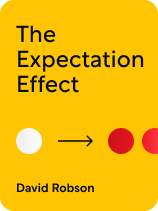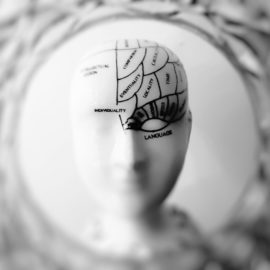

This article is an excerpt from the Shortform book guide to "The Expectation Effect" by David Robson. Shortform has the world's best summaries and analyses of books you should be reading.
Like this article? Sign up for a free trial here.
How do the brain and body work together? How do expectation effects impact this connection?
In The Expectation Effect, David Robson looks at the mechanisms that make physiological expectation effects work. They’re especially powerful because of the way they influence your brain to interact with other systems in your body.
Let’s look at how the brain and body connection makes your predictions come true.
Expectation Effects Kickstart Healing Processes in the Brain
According to Robson, one way that expectation effects influence the brain and body connection is by prompting your brain to initiate a response that makes the expectation a reality. For instance, if you’ve been injured, the body will start to heal when your brain tells it that you’re safe. Receiving treatment, even if it’s a placebo, makes you feel safe, and that can signal to the brain that it’s time to start the healing process.
(Shortform note: Researchers have tried to separate placebo effects from effective treatments, but the distinction isn’t clear. Researchers have found that placebos ease symptoms of conditions like fatigue, chronic pain, irritable bowel syndrome, and Parkinson’s disease. They also alleviate emotional pain in depression and social phobia.)
Expectation Effects Prompt the Brain to Send Signals That Affect the Entire Body
Expectation effects also influence what the brain communicates to the body. Robson explains that positive expectations prompt your brain to release rewarding or pain-reducing chemicals like dopamine and opioids. Negative expectations inhibit the release of neurotransmitters that reduce stress or pain and instead prompt the release of chemicals that increase these feelings. The effect of these signals isn’t localized to your brain but influences your whole body. For example, if you expect to get sick, that prompts your brain to release hormones and neurotransmitters that act as signals to your immune, circulatory, and digestive systems. These chemicals might increase inflammation, change your blood pressure, or induce nausea, so that you feel sick as a result of expecting to feel sick.
(Shortform note: Your brain’s ability to make you feel sick just based on your expectations might sound like a stretch. But researchers say that when you get an infection, it’s not your immune system that kicks your symptoms into gear: It’s your brain. A small group of neurons near the base of the brain seems to be responsible for inducing the symptoms of illness. So it’s not surprising that your expectations can exert a powerful effect on how you feel.)
Even longer-term expectations set these processes in motion. When we feel anxious about getting older, the stress triggers chronic inflammation, which increases risk for many illnesses. People with more negative beliefs about the decline they’ll experience as they age also tend to have shorter telomeres, which means that stress about aging damages your DNA and may even make you more vulnerable to disease as you age.
(Shortform note: In The Telomere Effect, Elissa Epel and Elizabeth Blackburn explain telomeres as one of the mechanisms underlying the mind-body connection. They argue that changes you make to your daily habits and your state of mind—like managing stress, exercising, eating a healthy diet, and getting adequate sleep—can affect the length of your telomeres and your longevity. But other scientists say that it’s difficult to prove that lifestyle affects telomere length and longevity, and other factors beyond telomeres affect how cells age.)
Expectations Trick the Brain
Robson reports that expectation effects also interfere with how your brain calculates limits and regulates resources. When setting your physical limits, the brain tries to use signals from inside your body, but your expectations can override even simple indicators like your temperature. For example, when cyclists were told that their body temperature was lower than it was, their stamina improved—thinking their body temperatures were lower made them expect to be able to ride further, and that expectation outweighed the reality of their actual body temperatures.
(Shortform note: Temperature has such a significant effect on athletic performance that some cyclists refer to manipulating the temperature of their training environment as “temperature doping.” It might be hard to trick yourself into thinking you’re cooler than you are, but some experts recommend lowering the temperature when training on a stationary bicycle and turning on a fan, which can both cool you down and replicate the wind you’d feel when riding outdoors.)
A related effect occurs with mental focus. Some researchers think the brain methodically allocates glucose, its fuel, and that your expectations influence these choices. If you think your resources are limited, your brain reduces glucose consumption after strenuous activity. If you think your resources are unlimited, your brain doesn’t limit the use of glucose. In this way, your expectations for how long or well you can focus become reality.
(Shortform note: Other experts agree that your brain sets conservative limits. In The Willpower Instinct, Kelly McGonigal explains that your brain constantly checks your bloodstream for glucose and tells your body that its reserves are empty long before they really are. McGonigal says that you don’t have to trust these signals from your brain, and you can push past the first feelings of mental or physical fatigue.)

———End of Preview———
Like what you just read? Read the rest of the world's best book summary and analysis of David Robson's "The Expectation Effect" at Shortform.
Here's what you'll find in our full The Expectation Effect summary:
- Why you should rely on your body, not the universe, to make you happier
- How your brain can control your health, longevity, and quality of life
- Why you should focus on the benefits of getting older, rather than fearing it






